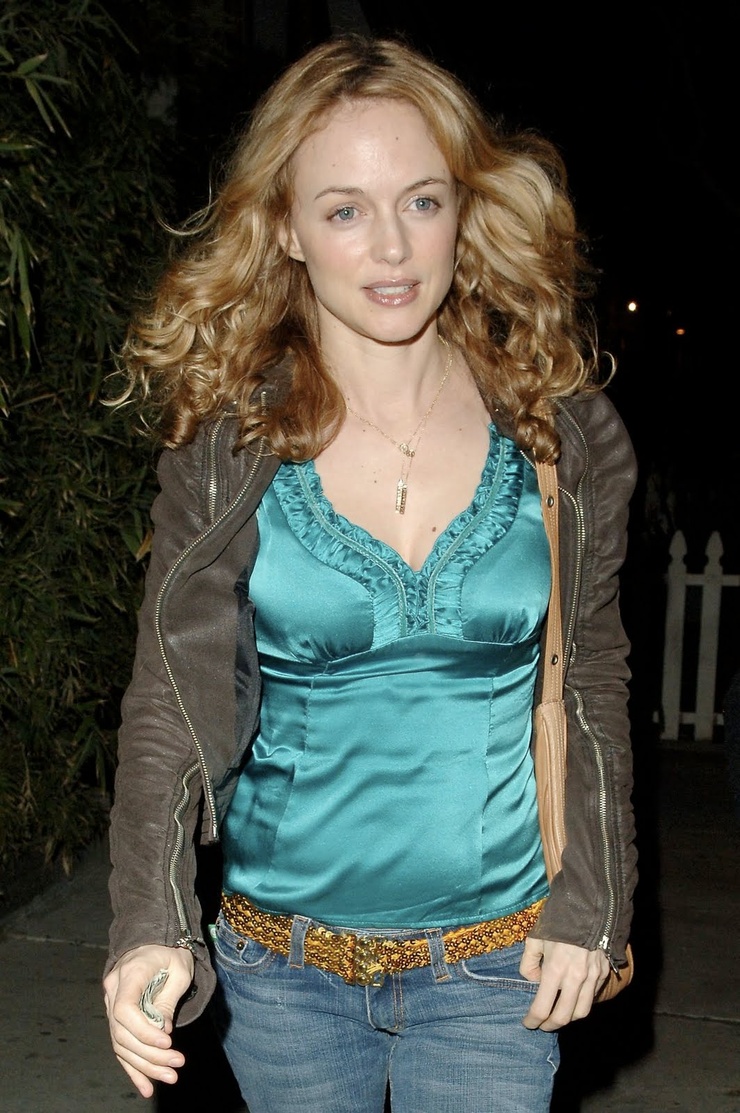Can iconic performances withstand the test of time and scrutiny? Heather Graham's portrayal in Boogie Nights remains a watershed moment in cinematic history, encapsulating raw talent and vulnerability. The film, released in 1997, catapulted Graham into the limelight, showcasing her ability to delve into complex characters with authenticity. Her role as Rollergirl, a druggie porn star, was both challenging and transformative, leaving an indelible mark on audiences worldwide.
Graham's journey from a relatively unknown actress to a celebrated Hollywood figure is nothing short of remarkable. Her breakout performance in Boogie Nights not only highlighted her acting prowess but also brought attention to her willingness to take on demanding roles that required physical exposure. This willingness has often been misconstrued as mere sensationalism; however, it underscores her dedication to her craft. In interviews, Graham has discussed the nuances of her decision-making process when accepting such roles, emphasizing the importance of character development over mere nudity.
| Full Name | Heather Elizabeth Graham |
|---|---|
| Date of Birth | November 25, 1970 |
| Place of Birth | Portland, Oregon, USA |
| Education | Bachelor of Arts in Theater from New York University |
| Career Highlights |
|
| Awards & Nominations |
|
| Personal Life | Married to actor Jason Lee (divorced); currently single |
| Reference | IMDb Profile |
In addition to her work in Boogie Nights, Heather Graham has consistently chosen projects that challenge conventional norms. For instance, her role in Swingers solidified her status as a versatile actress capable of portraying multifaceted characters. Similarly, her collaboration with director Frank Oz in Bowfinger showcased her comedic timing and adaptability. These roles further cemented her reputation as an actress who defies categorization, constantly pushing boundaries in her career.
Graham's candid discussions about religion and spirituality have added another layer to her public persona. In interviews, she has openly shared her thoughts on faith and its influence on her life and career choices. Such transparency has resonated with fans, offering them a glimpse into her personal beliefs while maintaining her professional integrity. Her appearance in the faith-based drama On a Wing and a Prayer exemplifies her willingness to explore diverse themes through her artistry.
Despite the controversies surrounding certain aspects of her work, particularly her nude scenes, Graham maintains that these decisions were rooted in artistic expression rather than gratuitousness. Comparing her experience with co-star Mark Wahlberg's nude scene in Boogie Nights, she explained the differences in execution and intent. While both actors bared their vulnerabilities on screen, their approaches reflected individual interpretations of the character arcs. Such insights provide valuable context for viewers seeking deeper understanding of the creative process behind such performances.
As technology evolves, so does the medium through which audiences engage with content. Social media platforms like Instagram have become integral to how celebrities interact with their fan base. With over half a million followers, Heather Graham leverages her presence effectively, sharing glimpses of her life beyond the silver screen. Whether discussing her love for filmmaking or indulging in nerdy hobbies, she cultivates an authentic connection with her audience. This digital engagement reinforces her image as a relatable yet accomplished figure in entertainment.
In recent years, Graham has ventured into genres outside her usual repertoire. Her role in the horror thriller Place of Bones marks a departure from traditional romantic comedies and dramas. Set against the backdrop of a remote ranch, the film explores themes of vengeance and survival. In one exclusive clip, Graham wields an axe with fierce determination, hinting at the intensity of her character. Such ventures demonstrate her commitment to expanding her range as an actress, continually reinventing herself within the industry.
While some critics question the necessity of explicit scenes in modern cinema, others argue they contribute significantly to narrative depth when executed thoughtfully. Heather Graham's contributions to this discourse highlight the importance of respecting artistic intent while acknowledging societal sensitivities. By addressing these topics openly, she encourages meaningful conversations around representation and authenticity in media.
Ultimately, Heather Graham's legacy extends beyond her on-screen achievements. Through her advocacy for mental health awareness and support for emerging filmmakers, she inspires future generations to pursue their passions fearlessly. Her journey serves as a testament to resilience and adaptability in an ever-changing landscape. As she continues to evolve both personally and professionally, her impact on the world of entertainment remains undeniable.
The intersection of art and commerce often raises questions about the limits of creativity versus commercial viability. Yet, Heather Graham proves time and again that genuine storytelling transcends fleeting trends. From her early days in theater to becoming a household name, she embodies the spirit of innovation and perseverance. Her story reminds us that true artistry lies not merely in what we see but in the emotions it evokes and the conversations it sparks.



